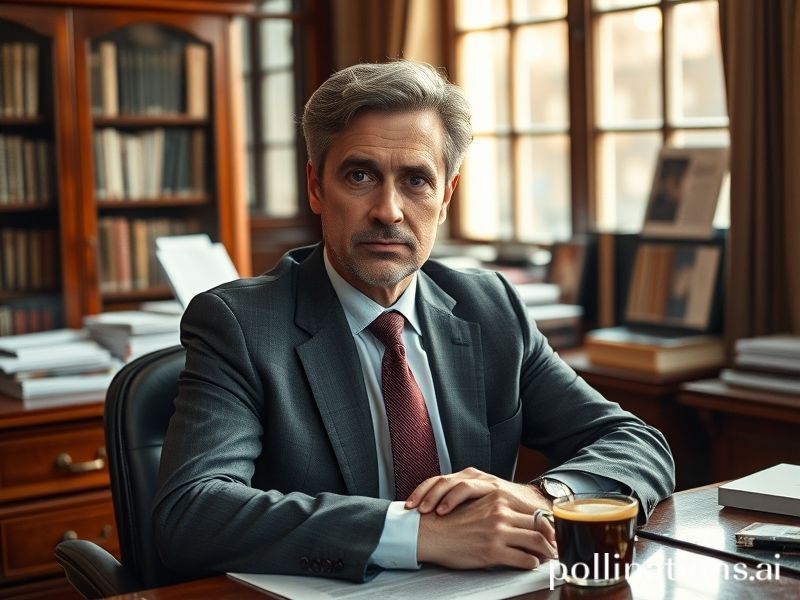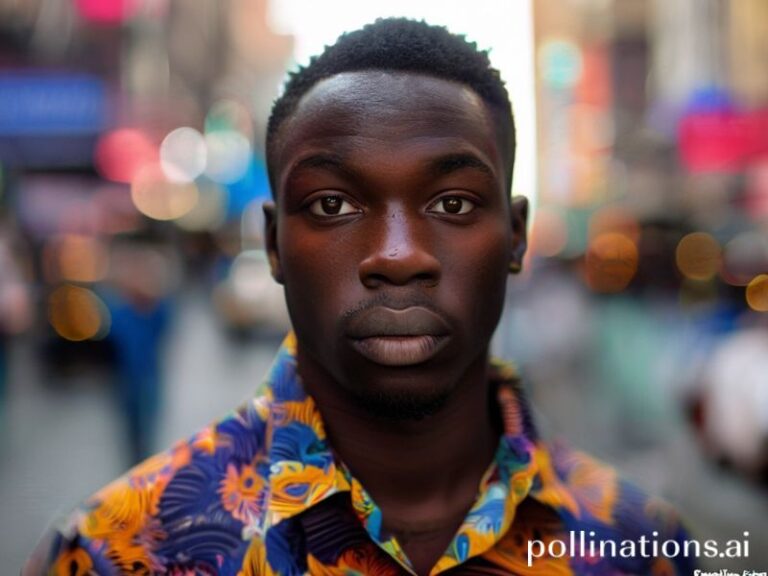Giovanni di Lorenzo: The Silver-Hired Puppeteer Pulling Europe’s Strings One 7,000-Word Essay at a Time
ZURICH—Somewhere between the Alps and the Baltic, a silver-haired Italian-German polymath named Giovanni di Lorenzo is quietly shaping what Europeans still dare to call “the conversation.” If that sounds like an overstatement, remember that we now live in an age when a single tweet can vaporize a billion dollars of market cap, yet entire parliaments can’t agree on lunch. Against that backdrop, di Lorenzo’s brand of slow-burn influence feels almost subversive—like using a fountain pen to sign a nuclear treaty.
Born in Stockholm, raised in Rome and Hamburg, educated at the German School of Rome and later at the University of Hamburg, di Lorenzo is the human embodiment of every EU bureaucrat’s fever dream: multilingual, impeccably networked, and allergic to simple answers. He edits Die ZEIT, Germany’s weekly paper of record, co-hosts the talk show “3nach9,” and still finds time to interview heads of state between sips of northern-Italian espresso. In other words, he is the sort of person who makes other overachievers look like they’re playing Tetris on a pager.
From Washington to Seoul, editors scour his Monday editorial for clues about what Berlin will do next—because whatever Berlin does, the ECB, the European Council, and half the hedge funds in Mayfair eventually follow. When di Lorenzo suggested last year that Germany’s “culture of restraint” had mutated into a “neurotic refusal to grow up,” bond yields fluttered like a debutante’s eyelashes. Translation: one man’s op-ed page moved the cost of borrowing for 450 million people. If that doesn’t terrify you, congratulations on your new crypto portfolio.
Globally, di Lorenzo matters because he still believes in the quaint notion that nuance travels farther than outrage. While American cable news chases the next dopamine hit and British tabloids compete to see who can shout “traitor” loudest, he publishes 7,000-word essays on the Weimar Constitution’s footnotes. The joke, of course, is that the essays get read—translated, parsed, WhatsApped across continents like samizdat for people who still own linen napkins. In a media ecosystem that rewards hot takes hotter than a McDonald’s apple pie, di Lorenzo’s cool rationalism is itself a form of trolling.
Irony abounds. The man who moderates televised debates between chancellors and insurgents once wanted to be a theater director. He claims to have abandoned the stage because “politics was better scripted,” a line so exquisitely cynical it deserves its own Netflix special. Yet the theatrical training lingers: he speaks in measured cadences, pausing just long enough for the audience to realize the next sentence will sting. During a recent live interview with Italy’s Giorgia Meloni, he asked whether her “post-fascist” label was merely “pre-marketing.” She laughed; the markets didn’t.
Observers outside Europe sometimes wonder why a weekly print editor still wields such clout in the era of TikTok diplomacy. The answer is partly structural: Germany remains the continent’s paymaster, and di Lorenzo is its unofficial translator. But it’s also psychological. In a world addicted to acceleration, he offers the illusion of depth—like a vinyl record that costs more but supposedly contains the sound of real fingers on real strings. Whether the depth is genuine or just clever branding is, naturally, left as an exercise for the subscriber.
There is, of course, the darker subplot. As Europe edges toward recession and the far right polishes its jackboots for a comeback tour, di Lorenzo’s cultivated centrism risks looking less like balance and more like complacency. When the house is on fire, the man urging us to debate the finer points of flammability may find himself handed a fire extinguisher—or shown the door. History suggests Germans know how that movie ends.
For now, though, Giovanni di Lorenzo continues to glide through Zurich airport lounges, murmuring bon mots in three languages while the rest of us scroll through demagogic headlines and wonder why democracy feels like a pop-up ad. Somewhere in his carry-on sits the next editorial, already half-written, no doubt beginning with a classical allusion and ending with a warning none of us will heed. And yet we’ll read it anyway—because in an age of endless noise, the rarest commodity is still a voice that knows how to whisper.







